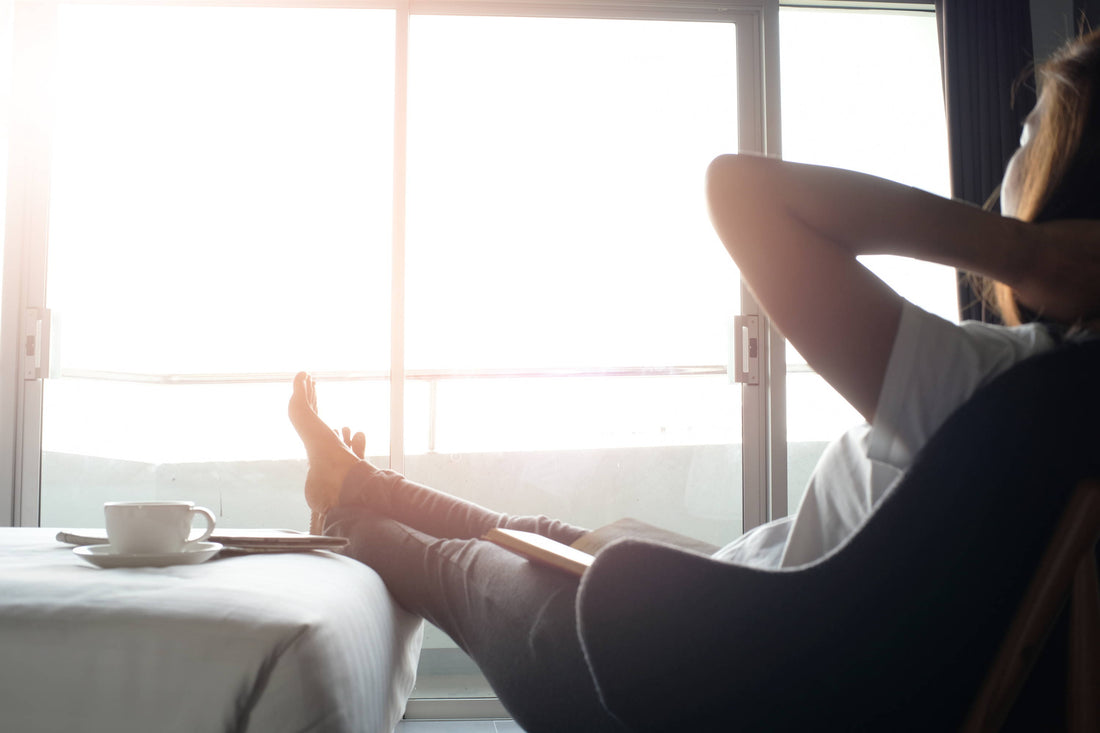Posted by Bloomy Lotus, 12th November 2020

The Benefits of Slow Living
Share
The Benefits of Slow Living
Are your days feeling mundane and overwhelming? Living “slower” can help. In a nutshell, slow living means adding intentionality and mindfulness into our everyday lives.
Even before the pandemic hit, our society has been dealing with feeling overwhelmed, stressed, and depressed. Much of these feelings result from the increased demand of our fast-paced lifestyles and the ability to instantly communicate and stay connected with the rest of the world online.
From our hectic work schedules and personal obligations to feelings of inadequacy and FOMO (fear of missing out) that are an inevitable side effect of social media, it can seem like we are simultaneously overworking ourselves and not feeling like we are doing enough.
The pandemic does have a silver lining, though. It is providing us with the framework we need to start slowing down and living more intentionally.
Here are some simple things you can do to start shifting to a slower lifestyle
Prioritize Self Care
Making time to do things that make your brain and your body feel good is absolutely essential. You may think to yourself, “so many people need me; spending any time on myself is selfish” –– we’re here to tell you this mentality is actually counterproductive. There is only so much we can do before we burn out, and we cannot pour from empty cups. So, treat yourself to that show on Netflix you’ve wanted to binge and take that bubble bath –– your life will be waiting for you when your cup is refilled.
Cut Out Unnecessary Tasks
Whether it’s personal or work-related, create a (manageable) to-do list every evening for the following day. Once you’ve checked everything off your list, be done and use the rest of your day to do something that brings you joy.
Sometimes this may not be do-able as tasks tend to arise throughout the day. Even when this happens, understand that you have the ability to say “no” if the task is not urgent. Learning how to differentiate urgent tasks from “this can be done later” tasks is empowering and can help maintain balance in your life.
Optimize Efficiency of Necessary Tasks
Food, clothing, shelter, and health are examples of basic living essentials. Since we know these are daily constants, there are things we can do to increase efficiency in our daily lives. For example, grocery delivery and pick-up have increased in popularity over the past year due to the pandemic, and it’s likely here to stay. Planning out your meals, only buying what you need for the week, and not spending time walking around the grocery store to find what you need doesn’t only make grocery shopping more efficient. It’s also a more economical way of doing this essential task. You can also do meal prep over the weekend to ensure you have meals throughout the week.Doing this frees up the time you would have otherwise spent cooking to do something you enjoy.
Get Creative
Engaging with creative activities is a simple way to add mindfulness and joy into your life. Studies have shown that incorporating creative sessions into your life can reduce feelings of depression and isolation. Whether you prefer creating music, drawing, painting, or graphic design, doing any of these things can help you slow down and be mindful.
"Treat yourself to that show on Netflix you’ve wanted to binge and take that bubble bath –– your life will be waiting for you when your cup is refilled."
Wake Up Earlier
If you feel like you absolutely don’t have any time during the day, you might want to try setting your alarm clock for 30 minutes to an hour earlier. Use this time to be mindful while doing something you enjoy:
- Watch the sunrise with a cup of tea or coffee.
- Get a run or exercise session in.
- Talk with your partner or simply just sit and make a list of things you’re grateful for in that moment.
Mornings are a time to reset and set the tone for the day; we should all take advantage of that.
Disconnect
Our phones, computers, and tablets are both a blessing and a curse. They help us stay connected to the people we care about and make us more productive. Still, they also give us unlimited access to (almost) anyone in the world and ironically leave us feeling even more isolated. Try and take a few hours each day where you’re not interacting with your electronics and use that time to connect with yourself, your pets, or your partner. Step outside and get some fresh air. Nature can do wonders for our mental health.
These are just a few examples of how you can “take time to smell the roses.” Life is beautiful, but it won’t last forever or wait for you to appreciate it. Take the time to enjoy and be grateful for the little things in your life. They often get missed when we’re living fast.
Written by Kara Montgomery
Kara believes the small choices of what we expose ourselves to on a day-to-day basis have a profound impact on our overall health. As a published neurotoxicology researcher, Kara has participated in studies that examined the link between pesticides and Parkinson’s disease, which have garnered around $1 million in NIH funding. With this knowledge, Kara takes a critical eye to the products and habits all of us engage with on a regular basis. She holds a BS in Neuroscience from King University.
